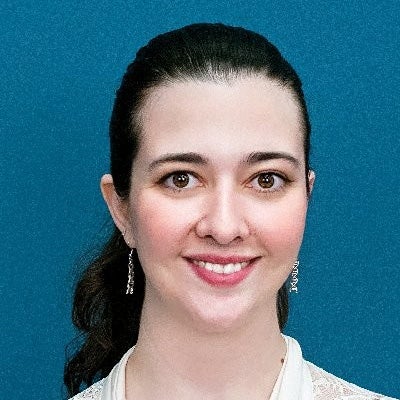More Career Advice
Learn from faculty, staff, postdocs, students and alumni through our Career Catalyst blog.
Career CatalystBy Dr. Camile Castilho Fontelles, PhD
Post-Doctoral Fellow
Pursuing a master’s degree or a doctoral degree is not an easy task and it involves a lot of time, sweat, and tears. Therefore, it is important to consider what you will do with it once you receive it. Many students aim to remain within academia and pursue advanced degrees, fellowships, or professorships which are all viable and rewarding in their own right. Fortunately, for those otherwise inclined, there are many occupations outside academia that require graduates with strong scientific backgrounds.
Dr. Toby Freedman, a speaker for the BGE Career Options Seminars, provided more information on the variety of opportunities outside of academia. Dr. Freedman earned her PhD in molecular biology and transitioned into a successful career in business as a writer, recruiter, and entrepreneur. Recently, Dr. Freedman launched a life science recruiting firm, Synapsis Search, and published an informative book called Career Opportunities in Biotechnology and Drug Development. In an easy and quick approach, she highlights what careers are in need of people with scientific backgrounds and readers are encouraged to consider which careers align best with their experiences and interests.
Bio-IT assists with processing requirements for computer-automated solutions and project management. They also determine application architecture, conduct coding and programming, documentation, validation and testing quality, training end users, solving computer-related problems, conducting queries, auditing, and documenting computer-related FDA guidelines.
Business developers are deal makers. They work in corporate development and strategy to improve the company’s financials and outlook. Their responsibilities can include competitive intelligence, portfolio management, negotiating deals, alliance management, IR and PR, finance, fundraising, and handling legal issues.
Clinical development involves drug safety assessment, phase I-III trials, and clinical affairs. It is perfect for people that want to be in the practical side of science.
Corporate communications involves developing communications strategies that aligns with the company’s business strategies and image. Additional responsibilities include designing marketing materials, creating a corporate identity, developing relations with an investment community, fundraising, planning events, and maintaining public and community relations.
Jobs in discovery research are similar to jobs in academia. They consist of generating research, designing experiments, doing the bench work, supervising research, analyzing results, writing (reports, publications, patents, regulatory documents), and presenting and attending scientific conferences.
These financiers raise money from limited partners and serve on the boards of companies. They also meet with potential portfolio companies and manage investments.
Law professionals draft patents and continuing applications. They argue appeals, conduct due diligence, search patents, develop patent portfolio strategies, prepare legal and business agreements, litigate, prepare for trials, provide legal counsel, bring in new business, network, and administrate firm responsibilities.
This line of work requires excellent time management and stress resistance. Consultants look for ways to improve a business in any way they can, acting in several areas such as operational, business, science, finance, primary research, and data analysis. They draw conclusions from experiments, present results to clients, manage client relations, and bring in new businesses. They are considered to be the “rain makers” within the workplace.
Professionals in medical affairs are involved in clinical studies, phase IIIB and IV studies, registries, information dissemination, and medical communication. Common occupations in medical affairs include medical science liaisons and patient advocacy.
Operations handles manufacturing, product monitoring and testing, hiring and training of employees, managing people, managing capacity utilization, problem-solving, and troubleshooting aspects of a company. They are also responsible for documentation, vendor and alliance management, facilities management, budget management, strategy and portfolio management, personnel safety, and employee communications.
Preclinical research evaluates and selects the most promising drug candidates for clinical trials, characterize drug candidates (in animal models and assays) and be part of the development of small drug and biologics.
This occupation assists with pre and post-sales support, facilitate product evaluations, be a liaison between the company’s vice president and principal investigators, present, consult, and attend scientific conferences.
Project managers are responsible for moving projects or programs forward, conducting meetings, facilitating the process, allocating resources, mitigating risks, contingency planning, managing alliance, and managing strategies and decisions.
Chemists verify the purity of drug products and perform sterility testing and environmental monitoring in order to test for quality assurance. They also work with departments to develop and implement systems and procedures to assure compliance with FDA, create and archive records, review documentation, audit, and conduct document management and surveys.
People in this field are responsible for filing and communicating with regulatory authorities. They are a part of regulatory intelligence, strategy, documentation, publishing, labeling, promotion and vigilance reporting, as well as compliance.
Sales directors seek new clients, consult with doctors and scientists, attend conferences/trade show booths, distribute educational material, and organize as well as run promotional events.
This is just a brief summary of some of the potential career paths Dr. Freedman describes in her book. To be fully informed, it is important to understand not only what each professional does on a daily basis but the pros and cons of each occupation. Current students should know that they have a wide array of careers to choose from and that they are situated to choose the one that best suits their personality and life goals. Now, go after them!

By Camile Castilho Fontelles, PhD
Dr. Camile Castilho Fontelles is a post-doctoral fellow at Georgetown University. She has a bachelor degree in Biological Sciences and a PhD in Sciences. Born in Brazil, she is a bookworm. Additionally she is passionate about science communication and loves to share her knowledge.
Learn from faculty, staff, postdocs, students and alumni through our Career Catalyst blog.
Career Catalyst